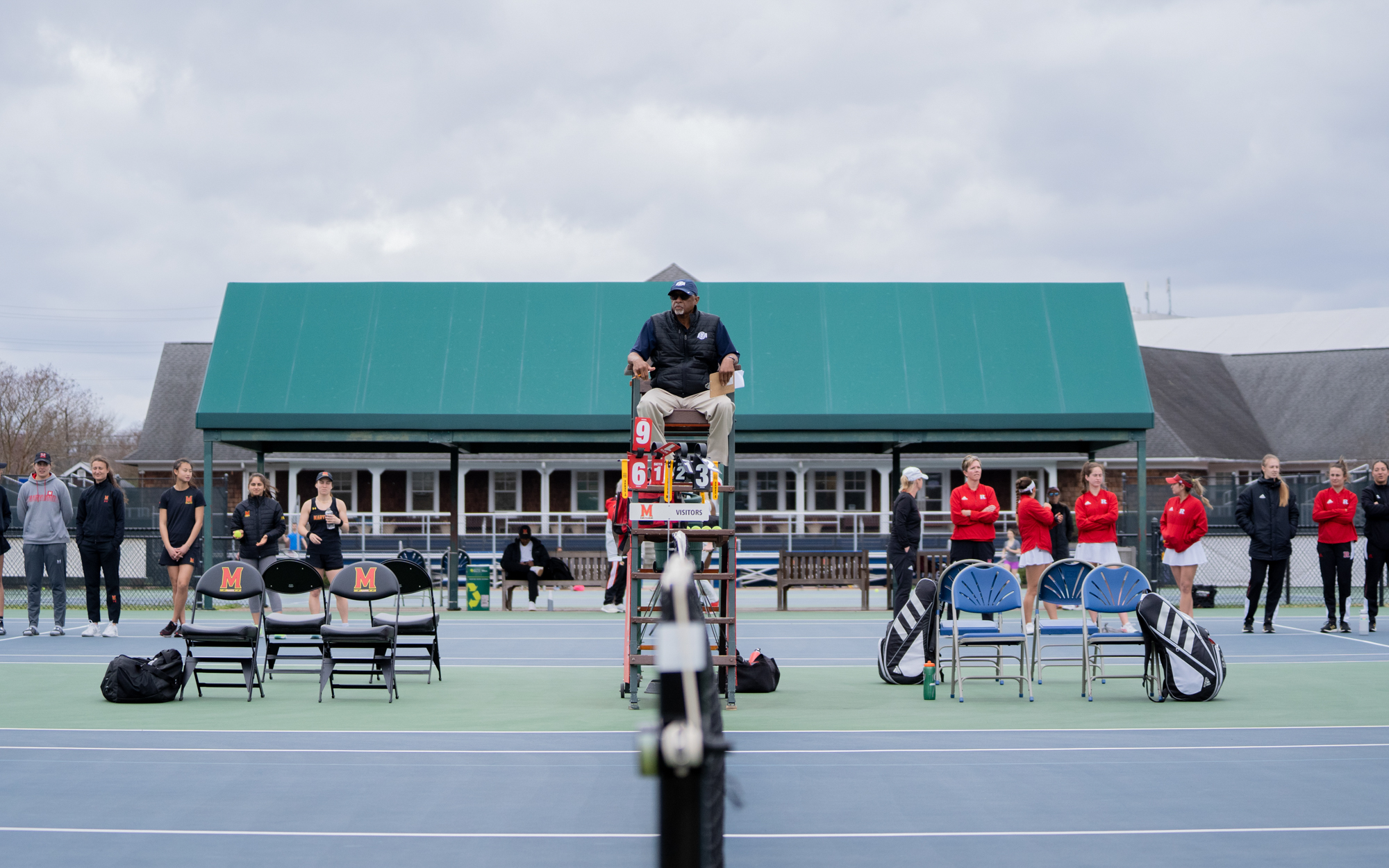By Matt Fusillo
For The Diamondback
The University of Maryland is partnering with the Junior Tennis Champions Center to launch a collegiate wheelchair tennis program in an effort to allow people with physical disabilities the chance to compete.
JTCC already has a wheelchair tennis program but is looking to start a team specifically for this university’s students. It could also initiate the addition of other adaptive sports at the university.
“Our wheelchair tennis program runs weekly on Sundays from 1 to 3 p.m. and we partner with MedStar National Rehabilitation Hospital,” said Gabby Hesse, head of wheelchair and adaptive tennis at JTCC. “We cater to beginners, intermediate, advanced wheelchair tennis players and also to youth.”
Hesse hopes students join the program.
“It’d be a great training opportunity to offer that to students and have them meet other members of the disability community in the area,” Hesse said.
Whether they have experience playing tennis or have never touched a racket, students of any skill level are encouraged to join the program.
[UMD students with disabilities opt for alternate modes of transit on campus]
Dr. Carolyn Fink, the disability studies minor director at this university, hopes to grow wheelchair tennis for students at this university through the program at JTCC.
“As an adaptive sport, wheelchair tennis is a great athletic outlet and endeavor. We want to add a collegiate team either club or intercollegiate to allow more people with physical disabilities, the chance to compete,” Fink said in an email.
Wheelchair tennis has the same rules as regular tennis, with the only difference being players have two bounces to return a ball instead of one. Sport wheelchairs are also available for students.
The current wheelchair tennis program attracts about 12 players per session, including people from Washington, D.C., Baltimore and Virginia.
At JTCC, tennis as a whole has fared very well considering the effects of the coronavirus pandemic due to the fact the sport is mostly socially distant. The facility is doing so well that almost all the courts are booked from open to close — and the center is considering adding even more courts because there is such high interest.
“With so much happening in one facility, it could feel competitive or overwhelming but instead, the community really supports one another and wants to see all of our programs thrive,” JTCC community outreach manager Ava Todd said.



